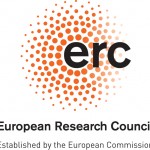The Institute of Near Eastern Archaeology, the Institute of Ancient Near Eastern Languages and Civilizations and Exellence Cluster TOPOI at Freie Universität Berlin are hosting a Workshop on Food an Urbanization on March 27-28, 2014.
Practices connected to the procurement, processing and consumption of food as well as methods for auditing these activities are crucial elements of social process generally and were at the very heart of the urbanization that arose in fourth millennium BCE southwestern Asia (Mesopotamia). The first highly stratified societies in ancient Mesopotamia were instituted, to a great degree, on basis of elite control over food resources of one kind or another. And it was in the process of tracking the storage and distribution of these foodstuffs that Mesopotamian bookkeeping came into existence, which was the first writing system in history, but more importantly for our purposes a concrete means of auditing the movement of foodstuffs through the administrative and social apparatus of the early state.
The workshop will bring together researchers specializing in the material culture and the textual evidence from Mesopotamia and the adjoining regions in the late fourth millennium (ca. 3600–3000) BCE in order to catalyze and move beyond existing analyses of food procurement, processing, consumption and administration in what is, after all, one of the earliest examples of urbanization and social stratification in human history. View the workshops’ programme and flyer online here.
The BabMed Project has received funding from the European Research Council under the European Union’s Seventh Framework Programme (FP7/2007-2013) / ERC Grant agreement no. 323596.



 Die
Die